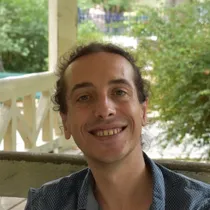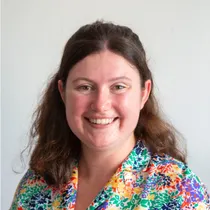Présentation

Notre recherche se concentre sur le décryptage des déterminants moléculaires du cancer, avec pour objectif de fournir les connaissances nécessaires pour améliorer la prise en charge des patients. Elle repose sur des analyses de données multi-omiques de haute dimension, caractérisant les tumeurs à différents niveaux, ainsi que sur des approches innovantes d'intelligence artificielle et de modélisation de réseaux biologiques. L'institut Curie offre un cadre idéal pour atteindre ces objectifs, grâce aux nombreuses collaborations possibles avec des biologistes et cliniciens, ainsi qu'à l'accès à un plateau technique de pointe. Nous sommes également engagés dans de nombreuses collaborations nationales et internationales, notamment avec des laboratoires en Espagne, Allemagne, Italie, Norvège, Pays-Bas, États-Unis et Japon. De plus, nous développons des logiciels disponibles publiquement sur le répertoire GitHub de notre équipe : https://github.com/sysbio-curie.
Axes de recherche thématiques
Membres
Publications clés
npj Systems Biology and Applications - 30/10/2023
Voir les auteurs
Bioinformatics - 01/06/2023
Voir les auteurs
Bioinformatics - 13/05/2022
Voir les auteurs
Computational and Structural Biotechnology Journal - 01/01/2022
Voir les auteurs
PLOS Computational Biology - 28/01/2021
Voir les auteurs
Scientific Data - 01/12/2020
Voir les auteurs
Entropy - 04/03/2020
Voir les auteurs
Nature Communications - 01/12/2019
Voir les auteurs
Bioinformatics - 01/04/2019
Voir les auteurs
Nature Genetics - 01/09/2017
Voir les auteurs
Vie d'équipe
 Building Multiscale Models to investigate CAF-mediated T Cell
Building Multiscale Models to investigate CAF-mediated T Cell
exclusion from tumour nests in Non Small Cell Lung Cancer.
We are looking for a PhD candidate !
The thesis will take place within the framework of PR[AI]RIE-PSAI, co-supervised by Laurence
Calzone and Vincent Noël.
To apply: send CV, motivation letter, copy of last diplomas, and contact details of 2-3 references
to laurence.calzone - at - curie.fr and indicate as subject the reference PR[AI]RIE-PSAI-PhD. The
deadline to apply is May 15. The results will be communicated in two phases between May 30 and
June 15.
More information here : Description du projet de thèse
 Computational Computational Systems Biology for Complex Human Disease - 21 avril 2024
Computational Computational Systems Biology for Complex Human Disease - 21 avril 2024
Computational Computational Systems Biology for Complex Human Disease: from static to dynamic representations of disease mechanisms
This exciting course will focus on applied, functional analysis and interpretation of disease data using computational modelling tools.
The week-long programme will cover the construction and analysis of both static and dynamic mechanistic networks of disease mechanisms concerning complex human diseases such as cancers, autoimmune, inflammatory diseases and others.
This course is aimed at PhD students, postdocs and clinicians/healthcare professionals who are interested in using systems biology approaches and computational modelling to tackle biological and biomedical problems concerning human disease.
More information : https://coursesandconferences.wellcomeconnectingscience.org/event/computational-systems-biology-for-complex-human-disease-from-static-to-dynamic-representations-of-disease-mechanisms-20240421/
 EMBO Workshop - 26 novembre 2023
EMBO Workshop - 26 novembre 2023
Computational models of life: From molecular biology to digital twins
Single-cell and spatial omics have increased the data granularity available for understanding biological mechanisms as well as exponentially increasing the amount of biomedical data available. Modelling has helped biomedical projects by uncovering mechanisms behind drug synergies and personalizing drug treatments while allowing for the study of all scales, from molecules to cells to tissues to organs and even to whole bodies. High-Performance Computing (HPC) environments have enabled the scaling up of scientific computing allowing it to reach an unprecedented scope. HPC has become an essential tool in many fields due to its ability to power up data analysis, storage and large-scale processing.
This in-person 5-day EMBO Workshop will gather early-career researchers and field leaders at the crossroads of single-cell omics, modelling and HPC to pave the way for realistic, scalable human digital twins of cells, tissues and organs. Presentations and discussions around these rapidly-evolving topics will push the field forward by training researchers with techniques from neighbouring fields and allowing them to tackle problems using combined approaches.
More information : https://meetings.embo.org/event/23-comp-models-life
 Models of data, data for models - 25 septembre 2023
Models of data, data for models - 25 septembre 2023
International Course on Computational Systems Biology of Cancer
The diversity across tumors from different patients and even across cancer cells from the same patient makes the picture very complex. The idea of ‘personalized’ or ‘precision’ medicine has been suggested, aiming to find tailored treatment regimen for each patient according to the individual genetic background and tumor molecular profile. This attempt is achievable thanks to sufficient molecular characterization of cancers accumulated using high-throughput technologies and advanced imaging technologies. However, despite availability of cancer multi-scale data, they are not fully exploited to provide the clue on deregulated mechanisms that would guide better patients stratification and to specific treatment in cancer.
The objective of the course is to promote better use of computational approaches into biological labs and to clinics. We aim to help participants to improve interpretation of various types of data accumulated in the labs using multi-modal data integration approaches.
More Info : https://training.institut-curie.org/courses/sysbiocancer2023
 Workshop at BC2 conference in Basel - 11 septembre 2023
Workshop at BC2 conference in Basel - 11 septembre 2023
Mechanistic and AI digital twins in personalized medicine - two sides of the same coin
Digital twins are an emergent concept in Computational Systems Biology and personalized medicine. Many initiatives manifest an interest of creating computational models of increasing complexity that could be used to represent virtual patients and help in the decision-making regarding the appropriate treatment. Having robust and reliable computational models spanning all biological layers such as gene expression, signalling and metabolism to name a few, could revolutionize the way we treat Big Data for the benefit of precision medicine and improved medical care - tailored to the needs of each patient. As the number of computational models rapidly increases, the production of data is ever growing and the approaches, both mechanistic and AI-based, are rapidly developing, discussions about challenges and best practices are needed more than ever.
The purpose of the workshop is to bring together researchers working in the field of digital twins in computational systems biology who use various formalisms to address challenges of data integration and model personalization. The focus will be on presenting the state of the art in the field and how mechanistic computational modelling can upscale benefiting from AI-based methodological advances.
More information : https://bc2.ch/tutorials-workshops
 From pathway modelling tools to cell-level simulations - 25 juin 2023
From pathway modelling tools to cell-level simulations - 25 juin 2023
PerMedCoE Summer School 2023
The PerMedCoE summer school will take place on the 25 – 30 June 2023 at the Hotel Montanyà in Seva, less than an hour away from Barcelona.
The course will combine lectures and hands-on exercises to:
- Introduce attendees to key practicalities of working with high-performance computing (HPC) clusters
- Build first-hand experience in using PerMedCoE modelling tools (CellNOpt, CARNIVAL, COBREXA, MaBoSS, PhysiCell and PhysiBoSS)
- Develop a practical appreciation of using workflow managers and containerised PerMedCoE modelling tools to execute biomedical workflows
You can access the material we presented there on our sysbio GitHub: https://github.com/sysbio-curie/Curie-PerMedCoE-Summer-School-2023
Nous rejoindre
Rejoignez une équipe dynamique et passionnée pour faire avancer la recherche.
Il n'y a pas d'offre d'emploi disponible pour cette équipe actuellement.
Voir les autres offres d'emploi du Centre de Recherche




















